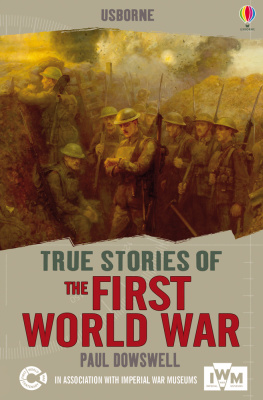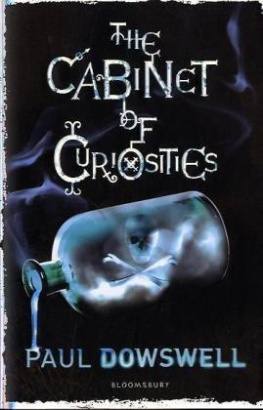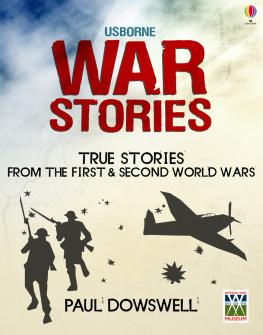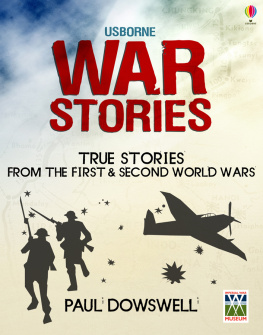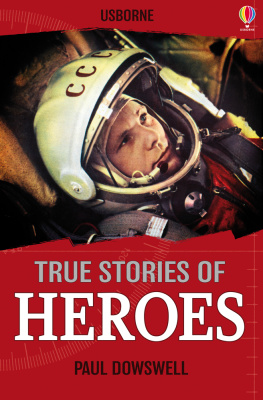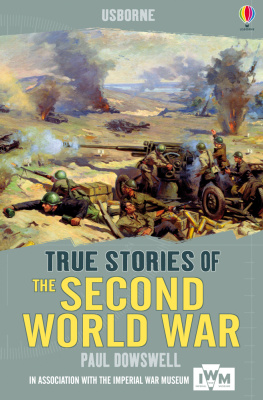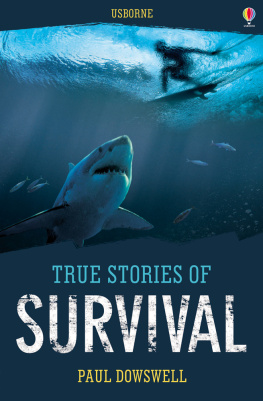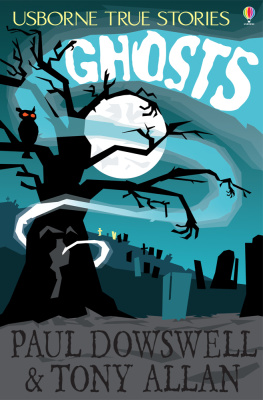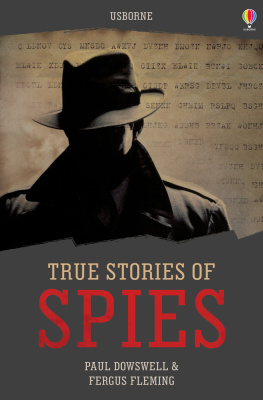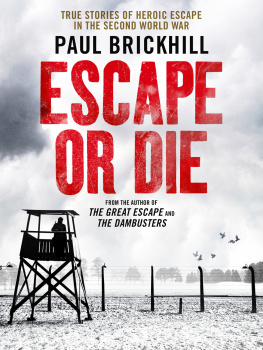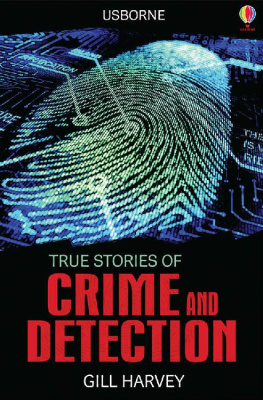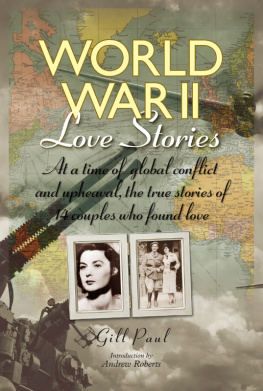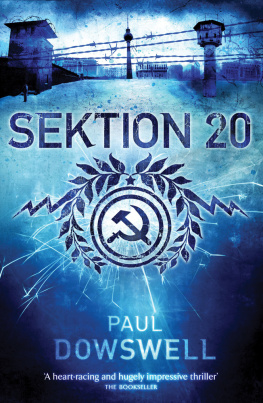Paul Dowswell - Usborne True Stories: The First World War
Here you can read online Paul Dowswell - Usborne True Stories: The First World War full text of the book (entire story) in english for free. Download pdf and epub, get meaning, cover and reviews about this ebook. publisher: Usborne Publishing Ltd, genre: History. Description of the work, (preface) as well as reviews are available. Best literature library LitArk.com created for fans of good reading and offers a wide selection of genres:
Romance novel
Science fiction
Adventure
Detective
Science
History
Home and family
Prose
Art
Politics
Computer
Non-fiction
Religion
Business
Children
Humor
Choose a favorite category and find really read worthwhile books. Enjoy immersion in the world of imagination, feel the emotions of the characters or learn something new for yourself, make an fascinating discovery.
- Book:Usborne True Stories: The First World War
- Author:
- Publisher:Usborne Publishing Ltd
- Genre:
- Rating:5 / 5
- Favourites:Add to favourites
- Your mark:
- 100
- 1
- 2
- 3
- 4
- 5
Usborne True Stories: The First World War: summary, description and annotation
We offer to read an annotation, description, summary or preface (depends on what the author of the book "Usborne True Stories: The First World War" wrote himself). If you haven't found the necessary information about the book — write in the comments, we will try to find it.
Usborne True Stories: The First World War — read online for free the complete book (whole text) full work
Below is the text of the book, divided by pages. System saving the place of the last page read, allows you to conveniently read the book "Usborne True Stories: The First World War" online for free, without having to search again every time where you left off. Put a bookmark, and you can go to the page where you finished reading at any time.
Font size:
Interval:
Bookmark:

The First World War still haunts us today. With its aircraft, submarines, machine guns and tanks, it was the first modern war. But the generals who fought it came from an age of cavalry charges and dashing red uniforms. The result was slaughter on a massive scale making it one of the most troubling wars in history.
This book contains eye-witness accounts of some of the First World Wars most important events, from the epic naval battle of Jutland to the strange Christmas truce of 1914.

1914
In the first four days of August 1914, the worlds most powerful nations declared war on each other. They lined up in two opposing camps. On one side was Germany and Austria-Hungary, who were known as the Central Powers. On the other was Britain and France, together with their empires, and Russia. They were known as the Allies. In the course of the war, other nations would be drawn into the conflict, too. The Ottoman empire and Bulgaria joined the Central Powers. Italy, Romania, Japan and China joined the Allies. So did the United States, despite the initial reluctance of a great many of its people. It was to be the first real world war in that it involved countries from every inhabited continent although most of the fighting took place on what became known as the Western and Eastern fronts, on either side of Germany.
As news of the outbreak of war spread, crowds began to gather in the hot summer sunshine, congregating in the great squares and parks of Europes principal cities. Far from being fearful or anxious, they were elated like football fans anticipating a closely-fought game. Each side expected a war of great marches and heroic battles, quickly decided. The German emperor, the kaiser, told his troops they would be home before the leaves fell from the trees. The British were not so optimistic, although it was frequently claimed that the war would be over by Christmas. Only a few far-sighted politicians realized what was coming, including the British foreign secretary, Sir Edward Grey.
Watching the dusk from his window on August 4, the day Britain declared war on Germany, Sir Edward sighed: The lamps are going out all over Europe; we shall not see them lit again in our lifetime. His melancholy remark had a deep resonance, for the world would never be the same. Grey and his fellow citizens were living in a strong and prosperous country, with a vast empire. The war would provide a rude awakening to the grimier reality of the 20th century, completely undermining Britains position as the worlds most powerful nation.
Almost all the other participants in the war suffered a similar reversal of fortune, or worse. In France, half of all men aged between 20 and 35 were killed or badly wounded; its eminent position in the world would never recover. The Austro-Hungarian empire collapsed, with repercussions that can still be seen in the squabbling Balkan nations of today. The Germans ended the war on the brink of a communist revolution, and lost their own monarchy. The war swept away the Russian monarchy too, then brought the communist Bolsheviks to power. With them came 70 years of brutal, totalitarian oppression. Like many countries in Eastern Europe, the Russians have never really recovered from the First World War, and its awful consequences. Only the United States did well out of it. By 1919, it had become the richest, most powerful nation on Earth, and was set to dominate the 20th century.
Quite apart from its consequences, there is something uniquely haunting about the First World War. The Second World War was far worse in terms of its cost in human life: it claimed over four times as many victims. It was also fought with much greater brutality, and came with such horrors as the Holocaust and the mass destruction of cities by aerial bombardment. But it did end with the overthrow of two undoubtedly evil regimes Nazi Germany and Imperial Japan and a peace which lasted for the rest of the century. The First World War, for all its terrible cost, produced no positive results at all.
The city crowds that gathered that August had no idea what the next four years had in store. The dreadful waste of life what British statesman Lloyd George would describe as the ghastly butchery of vain and insane offensives was something hitherto unknown in modern warfare. But, worst of all, when the final shell had been fired, the final gas canister unleashed and the final submarine recalled to port, there was nothing to show for it except an awful air of unfinished business and a tally of 21 million dead. Novelist H.G. Wells called it the war that will end war, and the phrase had caught on. It was such a gut-wrenchingly horrible conflict, everyone hoped humanity would not be foolish enough to do it again. The Versailles peace treaty officially ended the war in 1919. One of the leading participants, French commander Marshal Foch, dismissed the proceedings as a 20-year cease-fire. He was exactly right. By the early 1920s, people had already begun to refer to the war that will end war as the First World War.
The causes of the war were many. A system of rival alliances between the different European powers had built up in the previous decades, as individual countries tried to bolster their security and ambitions with powerful allies. But, although alliances provided some security, they also came with obligations. The events that led to war were set in motion in June 1914, when a Serbian student named Gavrilo Princip assassinated the heir to the Austro-Hungarian throne, Archduke Franz Ferdinand. In retaliation, Austria-Hungary swiftly declared war on Serbia. But Serbia was an ally of Russias. So Russia joined the war against Austria-Hungary, and all the other rival nations, tied to their respective alliances, were dragged into the conflict whether they wanted to be or not.
But why should a quarrel between Russia and Austria-Hungary over a little-known country in Eastern Europe automatically involve France, Germany and Britain? It was because each was obliged to support the other in the event of war. And there were other long-standing resentments, too. Britain, then the worlds greatest empire, maintained her power by means of the worlds greatest fleet. So when Germany began to build a fleet to rival the Royal Navy, relations between the two countries deteriorated sharply. The British and French both had vast colonial empires. Germany, similarly prosperous and powerful, had very few colonies and wanted more. They all joined in the fighting to maintain or improve their position in the world.
The reason the conflict was so horrific is easier to explain. The war occurred at a moment in the evolution of military technology when weapons to defend a position were much more effective than the weapons available to attack it. The previous 50 years had seen the development of trench fortifications, barbed wire, machine guns, and rapid-fire rifles. All of this made it simple and straightforward for an army defending its territory. But an army attacking well-defended territory had to rely on its infantrymen, armed with only rifles and bayonets and they were to be slaughtered in their millions.
Yet all the generals involved in the war had been trained to fight by attacking, so that is what they did. They had also been trained to think of cavalry as one of their greatest offensive weapons. The cavalry still armed with lances, as they had been for the previous 2,000 years took part in a few battles, particularly at the start of the war. But these elite troops were quickly massacred. The tactics of Alexander the Great, Ghengiz Khan and Napoleon, all of whom had used cavalry to great effect, were no match for the industrial-scale killing power of the 20th-century machine gun.
Font size:
Interval:
Bookmark:
Similar books «Usborne True Stories: The First World War»
Look at similar books to Usborne True Stories: The First World War. We have selected literature similar in name and meaning in the hope of providing readers with more options to find new, interesting, not yet read works.
Discussion, reviews of the book Usborne True Stories: The First World War and just readers' own opinions. Leave your comments, write what you think about the work, its meaning or the main characters. Specify what exactly you liked and what you didn't like, and why you think so.

